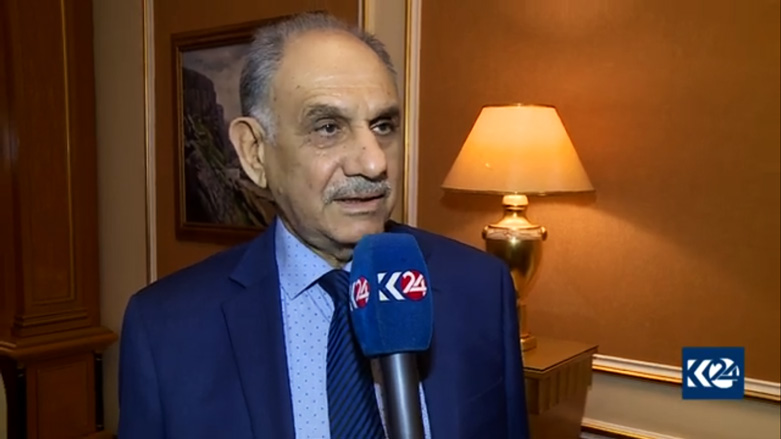Prominent Sunni political figure meets with Masoud Barzani in Erbil

ERBIL (Kurdistan 24) – Prominent Iraqi political figure Saleh al-Mutlaq, head of the National Dialogue Front party, spoke to Kurdistan 24 on Friday about his discussions earlier in the week with Kurdistan Democratic Party (KDP) leader Masoud Barzani in the Kurdistan Region's capital of Erbil.
Mutlaq, a secular Sunni politician born in Anbar province's city of Fallujah, served as deputy prime minister under former Prime Ministers Nouri al-Maliki and Haider al-Abadi. In what was widely seen as a sectarian crackdown on high-level Sunni politicians in 2011, Maliki ordered the homes raided and arrest warrants issued for both Mutlaq and then-Vice President Tariq al-Hashimi, causing both to flee to Erbil.
Mutlaq said that he spoke to Barzani about different strategies for confronting crises in the country and the region, the most urgent of these was the possibility of conflict in Iraq as a result of heightened tensions between Washington and Tehran.
"We do not want Iraq to be a battleground between the United States and any other country," Mutlaq said, referring clearly to Iran, whose policies in Iraq he long been vocally critical of.
The politician described Barzani as an important "symbol of Iraq," and explained that the two had previously decided to keep lines of communication open, agreeing to speak "from time to time."
The discussion, he said, "was a friendly meeting between brothers, friends, and comrades trained in building the political process, in spite of all its difficulties."
According to a statement about the meeting released by Barzani's office, the two party leaders "exchanged views on the latest political changes and developments at the level of Iraq and the region," and discussed "political solutions that lead to stability and progress of the political process and building a civil state."
